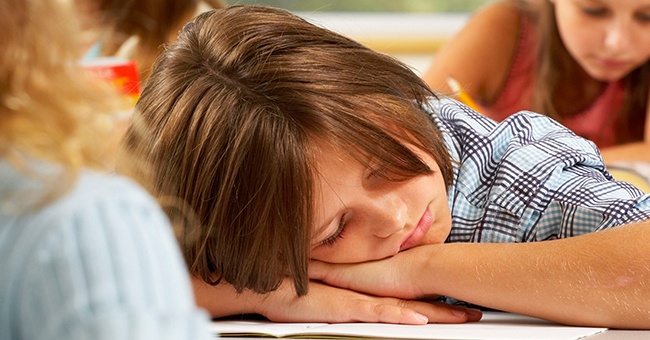
Exhaustion. Burnout. Stress. From Kindergarten to college, every student has been there. Whether your student is fighting a growth spurt, school sleepiness, or academic fatigue, there are ways you can help keep them awake and alert in the classroom.
- When in doubt, ask. There are many reasons why a student may fall asleep or tune out in the classroom, so if you have concerns, start asking questions. Have they eaten? How much sleep did they get the night before? Is the room too warm? When was the last time they moved around? Is the desk too far away from the action?
- Encourage healthy habits. Growing kids need plenty of rest, fruits, vegetables, and water to keep their bodies alert and humming along. Both parents and teachers can model good habits and teach the benefits of self-awareness and self-care.
- Address the overwhelmed. Kids today are pushed to pack more and more on their academic and athletic plates, yet the fact of the matter is there are only so many hours in a day. Be aware of the symptoms of burnout: long-term fatigue, intellectual exhaustion, decline in academic performance, apathy toward learning, and procrastination that replaces a previous excitement. Find out what can be removed or adjusted to create a little breathing room so more focus can be paid on what’s important.
- Make learning fascinating. One way to fight fatigue in the classroom is to up the ante. Studies have shown that students learn better when they are extremely interested in a topic; instead of tasking them to read on their own about a topic, get them out of their seats and engage them in the presentation and the discovery. Allow for self-expression both in and out of comfort zones, and use educational technology as a tool to track and monitor student progress.
- Provide plenty of breaks. Long lectures or long times in front of a tablet can make anyone a little sleepy. Remind students to get up and move about the classroom, eat a snack, stretch, or attempt a different task at regular intervals to give their eyes and brains a break.
When it comes to academic and physical fatigue, it’s important to keep the conversations going between students, parents, and teachers. The joint effort can go a long way to finding the source of the problem—and the solution—so that everyone can wake up to a better day of learning something new.

